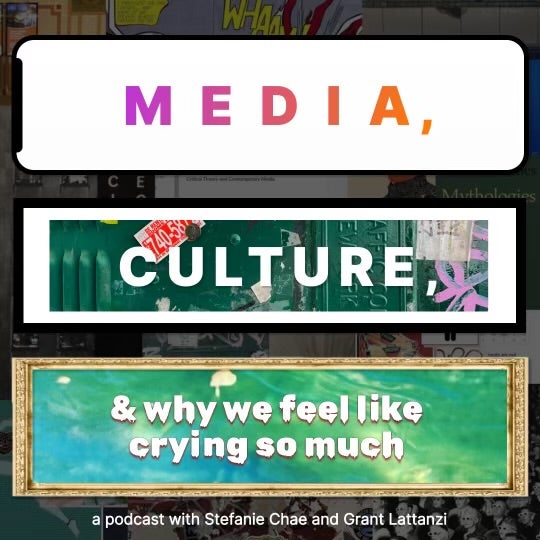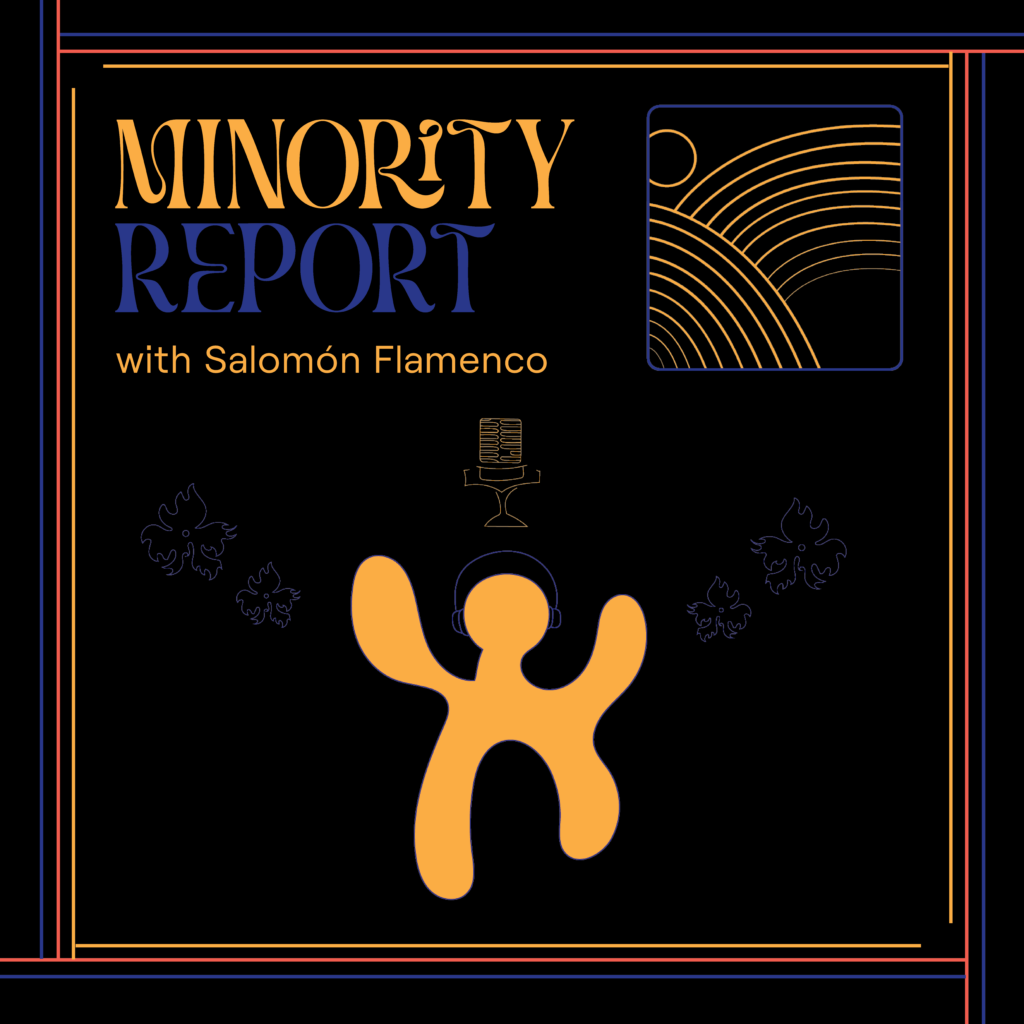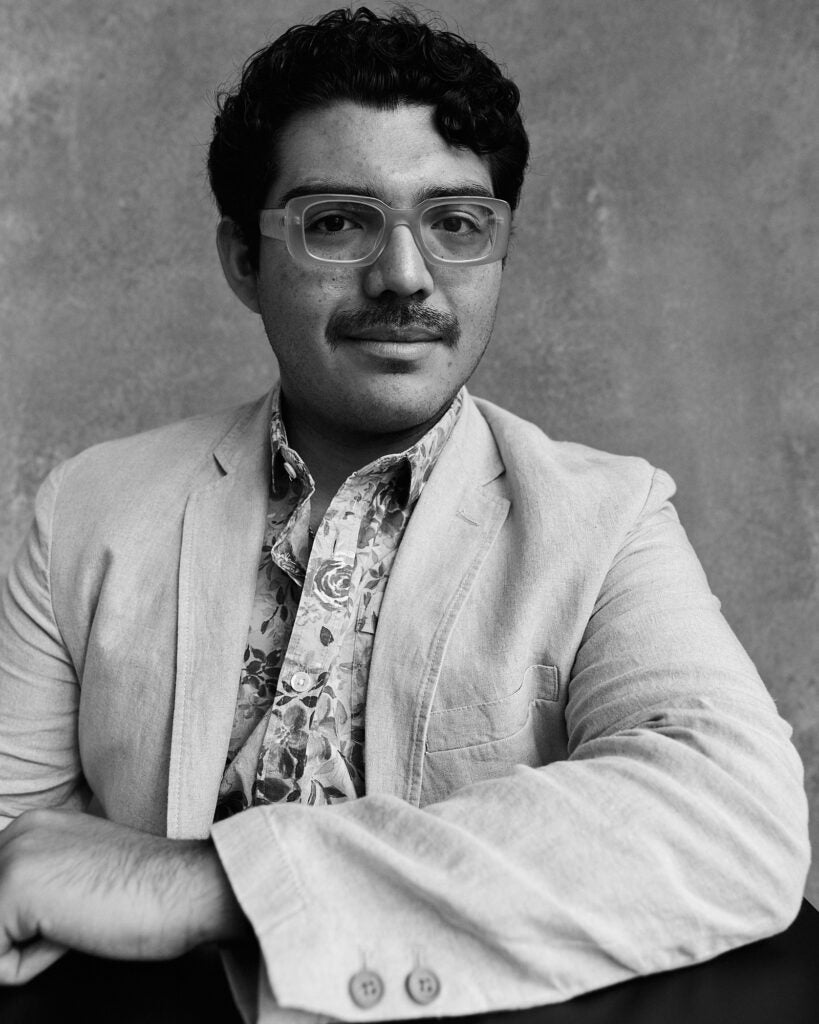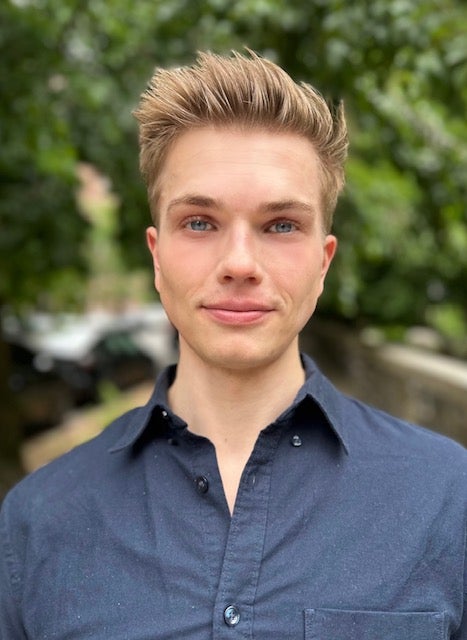CCT Student Podcasts
Are you an avid podcast listener?
Today, we are featuring two podcasts hosted by CCT students that offer unique insights into important topics. “Minority Report with Salomón Flamenco” focuses on the experiences of ethnic minorities in America, while “Media, Culture, and Why we feel like crying so much” explores the impact of media in our daily lives with former CCT students and co-hosts Stefanie Chae and Grant Lattanzi. Let’s delve into these podcasts and get to know the hosts.


1. What inspired you to start a podcast?
Salomón Flamenco, the host of “Minority Report with Salomón Flamenco,” was inspired to start his podcast after taking the Professional Podcasting for Business/Non-profits course with Professor Mark McDonald. Initially conceived as a “Daily Show”-esque affair with an emphasis on satire and current events, the podcast evolved under Professor McDonald’s guidance, focusing on more intimate, person-to-person stories.
Stefanie Chae and Grant Lattanzi, the hosts of “Media, Culture, and Why we feel like crying so much,” were motivated to start their podcast after studying critical theory and contemporary media with Professor Matthew Tinkcom at Georgetown. While also in Professor McDonald’s Podcasting class, Stefanie reached out to Grant, who shared her passion for media theory, and they became co-hosts. They use media theory to analyze everyday media habits and experiences, drawing on intellectual works addressing media and the social, bringing theorists such as Theodor Adorno, James Carey, Guy Debord, Roland Barthes, and Walter Benjamin, among others into dialogue for a wider audience. They also focus heavily on discourse and dialogues concerning the human condition occurring across media life.
2. Which episodes are most impactful?

Salomón Flamenco
Salomón: While it was difficult for Salomón to pick any single episode, there were three he especially wished to highlight:
- “The Oriental Obscene” with Professor Sylvia Chong – Prof. Sylvia Shin Huey Chong is a professor at UVA and author of “The Oriental Obscene.” In this episode, we discuss her work and research, what we can learn about Ethnic America through Asian American media, and the limits of inclusion narratives. With special guest co-host @Stefanie Chae!
- “Miami Freedom Project” – Ana Sofia Palaez is the co-founder of Miami Freedom Project, a Progressive Organizing group based out of Miami, Fl. And if you know anything about the history of Miami, you’ll get a good sense of why this episode is so interesting. In this episode, we talk about Miami and Florida politics, how those local politics represent a microcosm of the present and future of American politics, and how Ana Sofia’s Catholic upbringing has influenced her organizing career.
- “Laylit” – Laylit is a SWANA (Southwest Asian / North African) Diaspora Dance party. This doesn’t do justice to just how cool they truly are. Mixing past and future, Laylit is an inclusive vision of the future, providing a shared cultural sense of home for the SWANA Diaspora. The DJs they highlight are great, the founders are incredibly thoughtful, and Laylit’s parties are amazing. This episode is one of my favorite episodes.
Stefanie and Grant recommend specific episodes of “Media, Culture, and Why we feel like crying so much” for first-time listeners. Grant suggests the episode titled “You’re telling me an industry made this culture?” while Stefanie recommends the episodes reacting to influencer Emma Chamberlain’s daily routine. These episodes provide insights into the Culture Industry and the influence of celebrities in late capitalism.
3. Where do you want the future of the podcast to go?

Stefanie Chae
Salomón: “My big goal this year is to host an event at Georgetown and record the following conversation as a “live episode.” I don’t want to give much away, but there have been talks with a few on-campus groups and an artist on the East Coast who is part of a specific diaspora I have wanted to highlight for quite some time. That’s all I can say now without giving much away, but that is the big hope. The significant obstacles currently at hand would have to be slow-moving bureaucracies, as is often the case. But the excitement I have received from those I have shared this with has been encouraging enough for me to press on with some help from the previously mentioned Georgetown Affiliation groups.”
Stefanie and Grant aim to continue exploring various aspects of media in their podcast. They want to encourage critical thinking about the media people encounter daily and the practices ingrained in their routines. They also express their desire to connect with other CCT students and alumni to discuss their interests and experiences in the field. If you are interested in being featured on their podcast to discuss you and your interests in CCT, please email Stefanie and Grant at mediacultureandwhypod@gmail.com.
4. Why should people listen to your podcast?

Grant Lattanzi
Salomón: “Our current moment is a scary one, but what I aim to do with Minority Report is offer some hope in a future that we know is coming and, to some extent, is already here. Much of the backlash against “woke-ism” and DEI initiatives is based on a fear of change and seeking easy solutions to complex issues. What is often lost in those conversations, and which I would like to hear more of, is how diversity is not only good but necessary for a healthy society. Diversity of race, religion, ethnicity, and thought. The nature of this country is complex, and we do ourselves a major disservice in ignoring that for a history that was never so and a future that is stale, milquetoast, and uniform. Minority Report is none of those things, and that’s why people should listen to it.”
Stefanie and Grant encourage people to listen to their podcast because they want people to think critically about media they encounter daily and the practices ingrained in their day, which their “Media Life” episode sums up nicely. They encourage everyone to be aware of the technologies they use and the media they consume, and that things are deeper than they seem.
You can listen to season one of “Minority Report with Salomón Flamenco” on Spotify and Apple podcasts and “Media, Culture, and Why we feel like crying so much” every Thursday on Spotify, Apple podcasts, and iheartradio.
For CCT students interested in starting a podcast or learning more about the podcast process, we encourage you to consider taking Professor McDonald’s Professional Podcasting for Business/Non-profits course.